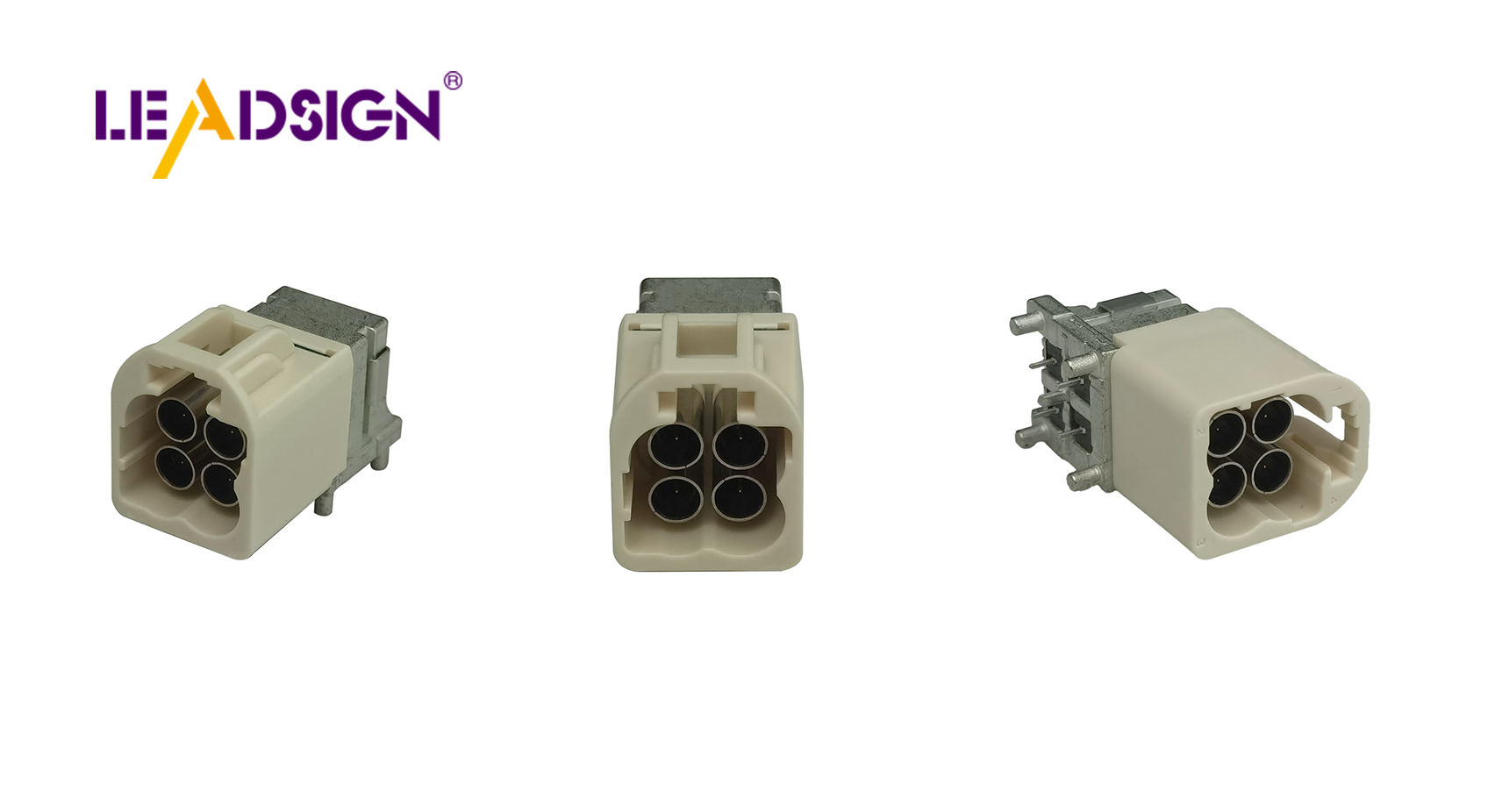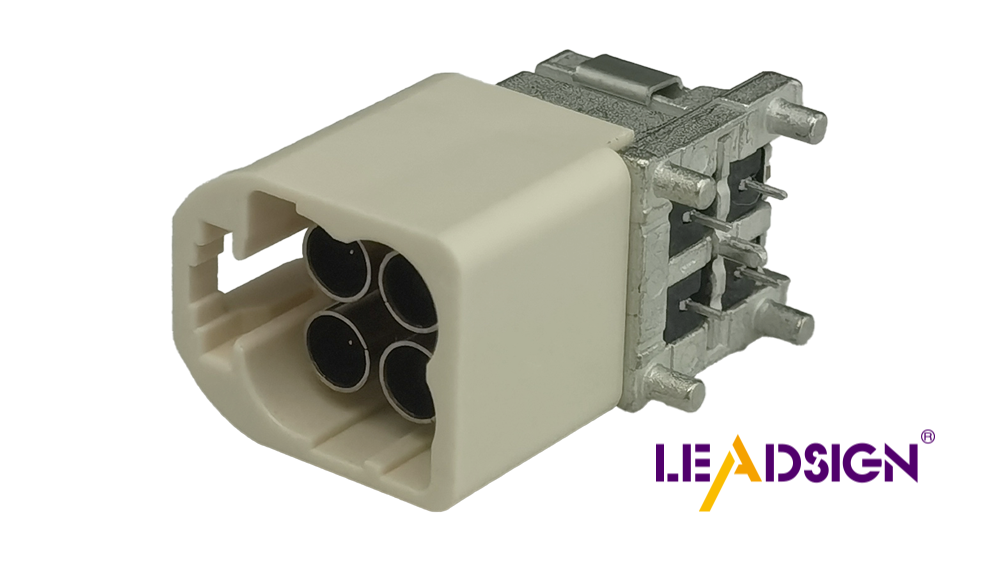How to Use Automotive Electrical Connectors Types Effectively

Automotive electrical connectors types are crucial components in modern vehicles. They play a vital role in ensuring the safe and efficient transmission of power within the vehicle's electrical system. Selecting the appropriate type of automotive electrical connector and ensuring proper installation are key factors in maintaining optimal performance. These connectors are designed to withstand high power demands, particularly in electric vehicles. This article aims to guide you in understanding the various types of automotive electrical connectors and how to effectively utilize them for peak performance in your vehicle.
Understanding Automotive Electrical Connectors Types

In cars, knowing about electrical connectors is important. They help your car's electrical parts work well. Let's look at different types of these connectors and how they are used.
Types of Automotive Electrical Connectors
There are many kinds of car connectors, each for a special job. Here are some common ones:
Blade Connectors
Blade connectors are popular in cars because they are simple and reliable. You can connect and disconnect them easily, which is great for places needing regular checks. They have a flat metal piece that fits into a slot to stay connected.
Pin Connectors
Pin connectors have one or more pins that fit into sockets. They are used where strong connections are needed. These provide good electricity flow and are often found in engines and important parts.
Butt Connectors
Butt connectors join two wires together. They help when you need to make wires longer or fix broken ones. By squeezing the connector onto the wires, you get a strong link that handles shaking and stress well.
Materials and Construction
The stuff used to make car connectors affects how they work and last.
Metal Connectors
Metal connectors are strong and conduct electricity well. They're used in high-power areas where being dependable is key. These can handle lots of power, perfect for electric cars and tough spots.
Plastic Connectors
Plastic connectors save weight and cost less. They're good for easier jobs where super strength isn't needed. Even though they're light, they keep out water and dirt just fine.
Applications in Vehicles
Car electrical connectors are crucial for different systems in vehicles:
Engine Systems
In engines, connectors let sensors, actuators, and controls talk to each other well. Good connections mean better engine performance.
Lighting Systems
Connectors in lights link up headlights, taillights, and inside lights. They must handle weather while staying connected securely.
Infotainment Systems
New cars have complex entertainment systems using connectors to join screens, speakers, and controls together. These need to support fast data for smooth sound and video.
Knowing about these car connector types helps you choose wisely when using them in your vehicle. Picking the right ones ensures your car's electrical systems work better.
Best Ways to Use Connectors
To make sure car connectors work well, follow good habits. These help keep your car's electrical parts working for a long time.
How to Choose
Picking the right car connectors is very important. Think about these things:
Matching with Car Parts
Make sure the connectors fit your car's systems. Different cars need different connectors. Using the wrong one can cause problems or damage. Always check details and ask an expert if unsure.
Environment Matters
Think about where the connectors will be used. Some work better in tough places, like hot or wet areas. For example, engine area connectors should handle heat and fluids. Choose ones with good seals to stop rust and last longer.
How to Install
Putting in connectors right is key for them to work well. Follow these steps:
Crimping Right
Crimping joins wires to connectors. Use proper tools for a strong crimp. A good crimp keeps wires from slipping out. Don't use pliers; they can harm the connector.
Checking Connections
After putting them in, make sure connections are tight. Loose ones can cause problems or stop working. Gently pull on wires to check they're secure. If they move, fix by re-crimping or soldering.
Care and Fixes
Regular care stops issues with car connectors. Here's how to keep them good:
Regular Checks
Look at your connectors often for wear or damage signs like rust or loose wires. Finding problems early stops bigger issues later. Check during regular car maintenance.
Spotting and Repairing Problems
If you have electrical troubles, start by checking connectors first as bad ones cause many issues like flickering lights or engine trouble. Replace bad ones quickly using quality brands like KONNRA that are tested for reliability.
By following these tips, you can use car electrical connectors well in your vehicle ensuring smooth and efficient operation of its electrical systems.
Common Mistakes and How to Avoid Them
When using automotive electrical connectors, mistakes happen. Knowing these mistakes helps your car work well.
Wrong Connector Choice
Picking the wrong connector causes big problems. Always choose connectors that fit your car's needs.
Problems with Wrong Connectors
Wrong connectors stop electricity flow. This can break parts or make them fail. For example, a connector not made for heat in an engine might melt. This leads to expensive fixes. Check specs and ask experts to ensure they fit.
Bad Installation Habits
Good installation is key for strong connections. Mistakes here can hurt the whole system.
Dangers of Loose Connections
Loose connections cause flickering lights or weird engine actions. Make sure all are tight and secure. Use proper tools, not pliers, which harm connectors. Check often for looseness early on.
Skipping Maintenance
Skipping maintenance affects how your car runs long-term. It finds problems before they grow.
Long-term Effects on Car Performance
Ignoring maintenance causes rust and wear, weakening links over time. This makes cars run poorly, like using more fuel or having electric issues. Regular checks and changing old connectors stop these troubles. Brands like Konnra test their connectors well for safety and trustworthiness in replacements.
Avoiding these mistakes keeps your automotive electrical connectors working right, helping your car stay healthy.
To use automotive electrical connectors well, keep these tips in mind:
Pick the Right Connector: Make sure it fits your car's parts to avoid big problems.
Install Correctly: Use the right tools for strong connections.
Check Often: Look at and change bad connectors to stop issues.
Use these ideas in real life to make your car work better. To learn more, check out trusted brands like KONNRA, known for good quality and new ideas in car connectors.
See Also
Significance of FAKRA Connectors in Auto Industry
Value of HSD Connectors in Auto Sector
Benefits of HFM Connectors in Auto Sector

